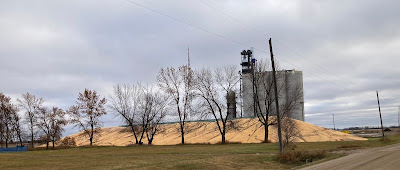In this household my wife and I can often be found walking through the history of our immigrant ancestors. Arriving by ship at various ports of entry our grandparents entered an unknown world with only a few dollars and the clothes on their back. Unable to speak English, they had little or no knowledge of the country’s geography or how to get where they could settle. They were jostled, ridiculed, and cheated by sharks who accosted them.
Immigrants coming to the U. S. were escaping poor conditions in their previous homes. Life had been good for German settlers in Ukraine for a hundred years or so. Catherine the Great, a German herself who through marriage became the Empress of Russia, knew they were good farmers and invited them to settle. They moved onto the vast lands of the Russian steppe with her promise of free land, freedom from military service, freedom of religion, and other incentives. Here they prospered. Alexander, one in the line of her successors, held the same philosophy and provided incentive for additional German success.
Unfortunately, their champions at the highest level did not stay in power forever. The German farmers began to be taxed heavily, livestock and produce were taken, young men were drafted into the army, and life became ever more difficult. Stories of America reached them and gave them new hope.
These Germans from Russia found their way westward and began setting roots. Some of their stories have been recorded in county and community history books where one from Grant County caught my eye. We’ll leave people unnamed but will join a newly married couple who received some cattle as a wedding gift. The groom had established a homestead on the west side of the Missouri River and the newlyweds needed to move them and their possessions from the east side. Joined by a few other couples their trek began.
With no roads to follow they traveled in their wagons and herded their cattle overland to a ferry on the river near the Indian Agency at Fort Yates. Here they encountered a frightening experience. Maybe it was gentlemanly of them to decide the women, children, and cattle should cross first, but that’s what happened. Everything went well, though, and the passengers disembarked. The task of keeping the cattle and the children in check fell to the women who no doubt wished the men would join them soon. The operator of the ferry turned back for the men, horses, and wagons.
Here’s where their plans fell awry. A strong wind blew the ferry onto a sandbar where it became hopelessly grounded. Efforts to get it afloat again failed. With night coming on they decided further efforts to dislodge it would wait until morning. The women, alone with their wits in a foreign land, suffered through the night and remembered stories they’d heard of scalping Indians, poisonous rattlesnakes, and ravenous wolves. Sleep did not come.
Remember this was the early 1900s and Indians posed no threat. In fact, the ferry operator had many Indian friends whom he could ask for help. By wading and swimming across the river he made it to their camp near the fort and found several of them willing to aid in freeing the ferry. With their help the situation returned to normal. The men and women reunited and continued on their way.
Fear of wolves played a part in some of the folklore that had instilled an enduring imprint in the minds of the immigrants. Russian literature carried stories about them, real or imagined. Writers like Tolstoy and Dostoyevsky can be cited, but I turn to an immigrant named George Aberle who became a Catholic monsignor in the Dickinson area to tell a good backgrounding story.
He wrote that the Russians developed the three horse troika sleigh to safely travel through wolf-infested steppes. Necessary business such as mail delivery between communities had to be conducted and three men rode the sleigh, two of them “riding shotgun” like we used to say in the Old West plus the team’s driver. In that way wolves could be kept at bay, but their danger was often present.
Stories of wolf attacks on the battlefields of World War I make one cringe. Corpses and wounded soldiers littering the ground became the target of hungry wolves. The New York Times wrote about the wolves being desperate in their hunger, and even though soldiers of both armies kept shooting them “Fresh packs would appear in place of those that were killed.”
In this country the immigrants didn’t much face dangers of Indian attacks or wolf packs, but rattlesnake bites did. One immigrant, Dan Panko, was concerned about the prevalence of rattler in his location faced the threat with legislation. He ran for a seat in the North Dakota legislature and submitted a bill to pay a bounty on them. Rejected, he persisted by bringing a box full of them, stiff with the cold, to a session and dumped them on the floor. In the warmth of the room they revived and began crawling around. He succeeded in getting the bounty passed which lasted for a few years. In my years out there with my wife’s people I never encountered very many, but when I did I couldn’t miss their presence with all the noise it made with that rattle on the end of their tail.
At the outset of this article, we said we might be found walking through the history of our immigrant ancestors. That history features a pioneering lot who endured the challenges of a new environment where succeeding generations have prospered. Many readers can point to their ancestry and find stories of immigrants.





